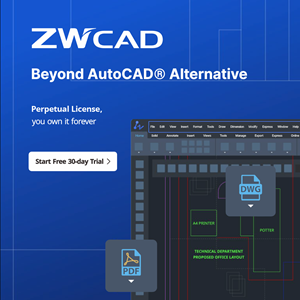“With more companies crossing the border from prototyping to serial production based on AM, the demand for reliable data for materials and built parts is growing. For this, EOS introduced Technology Readiness Levels (TRLs) in 2019 for materials and processes to classify technological maturity levels for easy customer orientation.” Hanna Pirkkalainen, Product Manager Metal Materials, EOS
New PREMIUM MaterialEOS ToolSteel 1.2709 for EOS M 290 Systems
Validated for EOS M 290 systems, EOS ToolSteel 1.2709 is a TRL 7, ultra-high strength and hardness maraging steel for demanding molding applications. This tool steel has an excellent fatigue strength and improved polishability. Properties are adjustable with different heat treatments after 3D printing. This new material is validated for the EOS M 290 system. Typical applications range from plastic injection molding, to extrusion tools, hot pressing tools to die casting tools for aluminum and zinc alloys.

Pipemold, material EOS ToolSteel 1.2709 for EOS M 290 systems
New CORE Processes
The three new CORE products for AlSi10Mg, Ti64 Grade 5 and 23 with up to 50 percent faster build rates increase the productivity of the EOS M 290 considerably. This leads to costs-per-part that are even more competitive and opens up new applications with profitable business cases. With EOS NickelAlloy IN718 and EOS MaragingSteel MS1, two new CORE materials are also now available for the EOS M 300-4. The materials portfolio of the EOS M 400-4 has also been extended to include two new and faster CORE processes for EOS Titanium Ti64 Grade 5 and EOS Titanium Ti64 Grade 23.

Isar Aerospace Technologies, exhaust outlet, material EOS Titanium Ti64 Grade 5 and Grade 23 for both the EOS M 290 and EOS M 400-4 systems
EOS Aluminum AlSi10Mgfor EOS M 290 Systems
Developed for the EOS M 290 system, the new 60µm process is classified as CORE material with TRL 3. The material offers high productivity, improved buildability and enables heat treatment to improve ductility. Typical applications are in all industries and the process is specifically targeted for applications where cost-efficiency is the main requirement.

Heat exchanger concept with bionic structures, material EOS Aluminum AlSi10Mg for EOS M 290 systems
EOS Titanium Ti64 Grade 5 and Grade 23
The new 80µm processes for both titanium alloys and for both the EOS M 290 and EOS M 400-4 systems enable higher build rates, resulting in lower cost-per-part. Both Ti6AI4V alloys offer excellent mechanical properties: high density with high strength and excellent corrosion resistance. The new 80µm processes are optimized for faster production of parts with properties similar to wrought Ti64. Typical applications range from aerospace and automotive components to other industrial applications where a combination of low weight with high strength is required.

Liebherr bracket, EOS NickelAlloy IN718 for EOS M 300-4 systems
EOS NickelAlloy IN718 and EOS MaragingSteel MS1 for EOS M 300-4 Systems
Developed for the EOS M 300-4 system, the 40 µm process comes with a TRL 3 classification. EOS NickelAlloy IN718 is a precipitation-hardening nickel-chromium alloy which is characterized by having good tensile, fatigue, creep and rupture strength at temperatures up to 700 ºC (1,290 ºF). Typical applications range from gas turbine components to instrumentation, power industry and process industry parts.

Tool insert, EOS MaragingSteel MS1 for EOS M 300-4 systems
The 50 µm process based on EOS MaragingSteel MS1 is as well designed for use on the EOS M 300-4 system. The material also comes with a TRL 3 classification. Parts built with this material are characterized by having very good mechanical properties. The parts can be easily post-hardened to more than 50 HRC to obtain excellent hardness and strength. Typical applications range from injection molding tools and inserts to mechanical engineering parts.
EOS Technology Readiness Levels (TRLs)
EOS introduced two categories to classify the materials for usage in serial applications: TRL 3–6 refer to Core materials, whereas TRL 7–9 refer to Premium materials. For example, level 3 refers to concept proof, level 5 refers to design freeze and a verification of the technical solution, while level 7 refers to production capability with extensive statistical data documentation.
About EOS
EOS is the world’s leading technology supplier in the field of industrial 3D printing of metals and polymers. Formed in 1989, the independent company is pioneer and innovator for comprehensive solutions in additive manufacturing. Its product portfolio of EOS systems, materials, and process parameters gives customers crucial competitive advantages in terms of product quality and the long-term economic sustainability of their manufacturing processes. Furthermore, customers benefit from deep technical expertise in global service, applications engineering and consultancy. For more information, visit https://www.eos.info.





